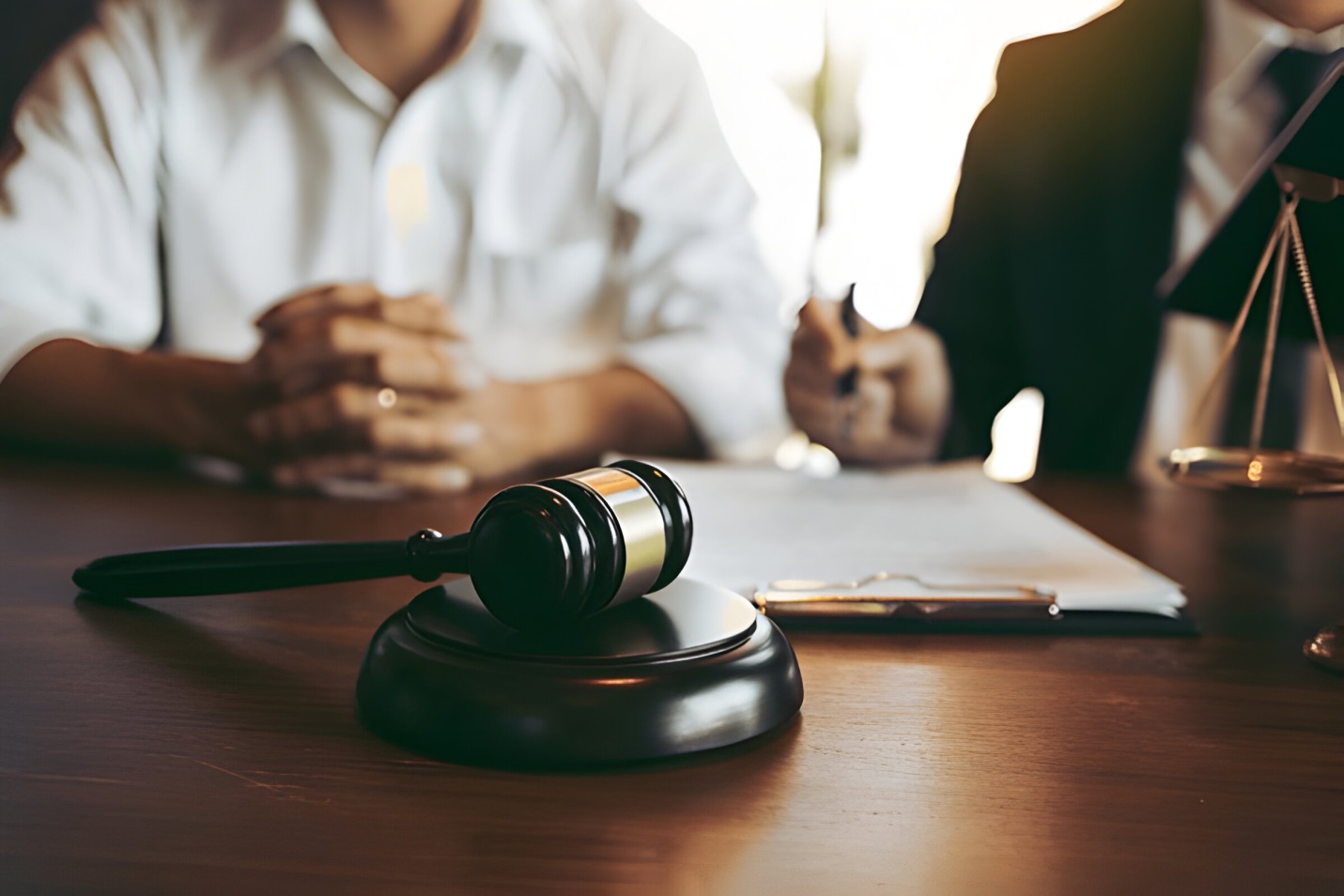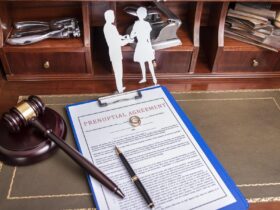Introduction To Legal Malpractice
Legal malpractice occurs when a lawyer fails to meet the required standard of care in their professional duties, leading to harm or loss for their client. This can include errors in legal advice, missed deadlines, or poor representation in court. Legal malpractice can significantly impact a client’s case and financial well-being. Understanding this concept is crucial for anyone seeking to ensure their legal rights are protected and to hold lawyers accountable for their mistakes.
Definition Of Legal Malpractice
Legal malpractice happens when a lawyer makes mistakes or fails to perform duties properly, causing harm to a client. It can include errors in legal advice, missed deadlines, or bad representation. These mistakes lead to losses or other issues for the client.
Importance Of Legal Malpractice Attorneys
Legal malpractice attorneys play a crucial role in addressing these issues. They help clients who believe their previous lawyer failed to act correctly. These attorneys investigate the mistakes, gather evidence, and represent clients in legal actions. They ensure that clients receive compensation for any harm caused and hold lawyers accountable for their actions.
Types Of Legal Malpractice
Breach Of Duty
Breach of duty occurs when a lawyer does not meet their professional responsibilities. This can include failing to follow the client’s instructions or not performing their legal duties properly. A breach of duty affects the client’s case and may result in legal issues or losses.
Negligence
Negligence happens when a lawyer does not act with the level of care expected from a legal professional. This can include mistakes in legal advice, errors in legal documents, or not adequately preparing for court. Negligence can harm the client’s case and lead to legal malpractice claims.
Misrepresentation
Misrepresentation involves a lawyer providing false or misleading information to a client. This could be misleading advice about the likely outcome of a case or misrepresenting the status of legal proceedings. Misrepresentation can lead to poor decisions and legal problems for the client.
Conflict Of Interest
Conflict of interest occurs when a lawyer has competing interests that affect their ability to represent a client impartially. For example, if a lawyer represents two clients with opposing interests, this can lead to biased advice and harm to one or both clients. Conflicts of interest can compromise the lawyer’s duty to act in the client’s best interest.
Failure To File In Time
Failure to file in time refers to missing important legal deadlines, such as filing documents or appeals. This can have serious consequences for a case, including the dismissal of claims or losing the right to appeal. Timely filing is crucial for maintaining the integrity of legal proceedings.
Common Causes Of Legal Malpractice Claims
Errors In Legal Advice
Errors in legal advice occur when a lawyer provides incorrect or misleading guidance. This can include giving wrong information about legal rights, misinterpreting laws, or advising clients on ineffective strategies. Such errors can lead to unfavorable outcomes and legal malpractice claims if they harm the client’s case.
Inadequate Research And Investigation
Inadequate research and investigation happens when a lawyer does not thoroughly examine the facts or gather necessary evidence for a case. This can weaken the client’s position by missing important details or failing to support the case with proper documentation. Insufficient research can significantly impact the success of legal proceedings and result in malpractice claims.
Missed Deadlines
Missed deadlines involve a lawyer failing to file documents, respond to motions, or take other required actions within set timeframes. Deadlines are critical in legal cases, and missing them can lead to the dismissal of claims, loss of rights, or other negative consequences. Such failures can form the basis of legal malpractice claims if they adversely affect the client’s case.
Poor Representation In Court
Poor representation in court refers to inadequate performance by a lawyer during legal proceedings. This can include weak arguments, lack of preparation, or failure to present evidence effectively. Poor representation can harm the client’s chances of winning the case and lead to claims of legal malpractice if it results in significant harm or loss.
How To Identify Legal Malpractice
Signs Of Malpractice
Signs of malpractice can indicate that a lawyer may not be fulfilling their duties properly. These signs include frequent mistakes or errors in legal work, lack of communication or updates about the case, and unprofessional behavior. If you notice that your lawyer is not meeting their obligations or if there are unexpected problems in your case, it may be a sign of malpractice.
Evaluating The Quality Of Legal Services
Evaluating the quality of legal services involves assessing how well your lawyer handles your case. Look for thoroughness in their work, timely responses to your queries, and proper legal advice. A good lawyer should be well-prepared, keep you informed, and act in your best interest. Poor performance or lack of diligence can signal potential legal malpractice.
Red Flags To Watch For
Red flags are warning signs that suggest possible legal malpractice. These include missed deadlines, lack of progress on your case, unexplained changes in the strategy, and conflicting advice. Additionally, if your lawyer is consistently late, disorganized, or dismissive of your concerns, these are significant red flags that you should consider seriously.
The Role Of A Legal Malpractice Attorney
Responsibilities And Duties
A legal malpractice attorney is responsible for helping clients who believe their previous lawyer made mistakes or failed to perform their duties properly. Their duties include reviewing the details of the malpractice claim, advising clients on their legal options, and representing them in legal proceedings. They ensure that clients receive fair compensation for any harm caused by the previous lawyer’s errors.
How They Investigate Claims
Legal malpractice attorneys investigate claims by examining the client’s case history, reviewing documents, and gathering evidence of the alleged malpractice. They may interview the previous lawyer, analyze court filings, and seek expert opinions to determine if mistakes were made. The goal is to build a strong case by showing that the previous lawyer’s actions or inactions led to harm.
Strategies They Use In Legal Malpractice Cases
In legal malpractice cases, attorneys use various strategies to prove that the previous lawyer was at fault. They may present evidence of negligence or breach of duty, use expert testimony to explain how the lawyer’s actions were substandard, and demonstrate the impact of these actions on the client’s case. Effective strategies help to establish that the malpractice directly caused harm and that the client is entitled to compensation.
Steps To Take If You Suspect Legal Malpractice
Gathering Evidence
Gathering evidence is the first step when you suspect legal malpractice. Collect all relevant documents related to your case, including correspondence with your lawyer, court filings, and any other records that show how your case was handled. This evidence will help to demonstrate any mistakes or failures by your previous lawyer.
Consulting With A Legal Malpractice Attorney
Consulting with a legal malpractice attorney is crucial to determine if you have a valid claim. They will review the evidence you have gathered, assess whether the previous lawyer’s actions constitute malpractice, and advise you on your legal options. An experienced attorney can help you understand the strengths and weaknesses of your case and guide you through the process.
Filing A Complaint With The Bar Association
Filing a complaint with the bar association involves formally reporting the lawyer’s conduct to the appropriate regulatory body. This step is important if you believe the lawyer’s behavior violated professional ethics or legal standards. The bar association will investigate the complaint and may take disciplinary action if the lawyer is found to have committed malpractice.
How To Choose The Right Legal Malpractice Attorney
Qualifications And Experience
When choosing a legal malpractice attorney, it is essential to consider their qualifications and experience. Look for an attorney who specializes in legal malpractice cases and has a strong background in handling similar claims. Check their education, certifications, and how long they have been practicing law. An attorney with relevant experience will be better equipped to handle your case effectively.
Reputation And Track Record
Reputation and track record are important factors in selecting a legal malpractice attorney. Research the attorney’s past performance by reading reviews, asking for references, and checking their success rate in similar cases. An attorney with a solid reputation and a history of winning cases will likely provide competent representation and have a better chance of achieving a favorable outcome.
Communication And Client Relationship
Communication and client relationship are key to a successful legal process. Choose an attorney who communicates clearly, listens to your concerns, and keeps you updated on your case. A good attorney should be responsive and available to answer your questions. A strong client-attorney relationship ensures that you are comfortable and confident in their ability to handle your case.
The Legal Process For Filing A Malpractice Lawsuit
Initial Consultation And Case Evaluation
The initial consultation and case evaluation involve meeting with a legal malpractice attorney to discuss your case. During this meeting, the attorney will review the details of your situation, assess the evidence you have, and determine whether you have a valid claim. They will explain the legal process, possible outcomes, and whether they can represent you.
Filing The Complaint
Filing the complaint is the formal step of initiating a lawsuit. Your attorney will draft and file a legal document called a complaint with the court. This document outlines your allegations against the previous lawyer, describes how their actions harmed you, and specifies the compensation you are seeking. Once filed, the complaint will be served to the defendant, who is the lawyer being accused of malpractice.
Discovery And Evidence Collection
Discovery and evidence collection are stages where both parties gather information to support their case. This includes collecting documents, obtaining witness statements, and conducting depositions. Your attorney will use this information to build your case by showing how the previous lawyer’s actions or omissions led to harm. Discovery is critical for revealing facts and supporting your claims.
Trial And Settlement
Trial and settlement are the final stages of the lawsuit. If the case goes to trial, it will be presented before a judge or jury, who will decide the outcome based on the evidence. During the trial, both sides will present their arguments, and a verdict will be reached. Alternatively, the case may be settled out of court through negotiations. A settlement is an agreement between you and the defendant to resolve the case without a trial, often involving compensation for damages.
Potential Outcomes Of A Legal Malpractice Lawsuit
Compensation For Damages
In a legal malpractice lawsuit, compensation for damages refers to the financial payment you might receive if you win the case. This compensation is meant to cover any losses or harm caused by the previous lawyer’s mistakes. It can include compensation for lost money, additional legal costs, and emotional distress. The amount depends on the impact of the malpractice on your situation.
Remedies And Remedies Available
Remedies and remedies available in a legal malpractice case are solutions or actions the court can provide to address the harm done. Remedies can include monetary compensation or orders for the previous lawyer to correct the mistakes. Remedies aim to make up for the damages and restore the situation to what it would have been if the malpractice had not occurred.
Possible Repercussions For The Attorney
Possible repercussions for the attorney involved in legal malpractice can be significant. If the court finds that the attorney committed malpractice, they might face financial penalties, such as having to pay damages. Additionally, the attorney may face disciplinary actions from the bar association, which can include suspension or disbarment. These repercussions impact the attorney’s professional standing and career.
Prevention And Risk Management
Tips For Avoiding Legal Malpractice
To avoid legal malpractice, lawyers should follow several key practices. They must stay updated with current laws and legal procedures, ensure thorough preparation for cases, and double-check all legal documents for accuracy. Maintaining clear and frequent communication with clients is crucial, as is keeping detailed records of all actions and decisions related to a case. Adhering to deadlines and seeking second opinions when necessary can also help prevent mistakes.
Best Practices For Attorneys
Best practices for attorneys include adhering to professional standards and ethical guidelines. Attorneys should engage in continuous education to stay current with legal developments. They should also implement quality control measures, such as regular case reviews and consultations with colleagues. Building strong client relationships through transparency and regular updates is essential. Additionally, attorneys should manage their workload effectively to avoid overextension and ensure each case receives the necessary attention.
How Clients Can Protect Themselves
How clients can protect themselves involves being proactive in managing their legal affairs. Clients should choose attorneys based on their qualifications, experience, and reputation. They should ask questions about their lawyer’s approach, maintain regular communication, and request updates on their case’s progress. Keeping copies of all correspondence and legal documents is important for tracking the attorney’s work. If clients suspect issues with their representation, they should seek a second opinion or consult a legal malpractice attorney.
Conclusion
In conclusion, legal malpractice can have serious consequences for clients who suffer from a lawyer’s errors or misconduct. Understanding the types of malpractice, common causes of claims, and the role of a legal malpractice attorney is crucial for anyone seeking justice. Key steps to address suspected malpractice include gathering evidence, consulting with a specialized attorney, and filing a complaint with the bar association. Choosing the right attorney involves evaluating their qualifications, reputation, and communication skills. Effective risk management and prevention practices are essential for both attorneys and clients to avoid malpractice issues. Ultimately, legal malpractice attorneys play a vital role in ensuring accountability and protecting the rights of those affected by legal missteps.
FAQs
1. What is legal malpractice?
Legal malpractice occurs when a lawyer fails to perform their duties to the standard expected, causing harm to a client. This can include mistakes in legal advice, missed deadlines, or improper conduct.
2. How do I know if I have a legal malpractice claim?
To determine if you have a legal malpractice claim, you should assess whether your lawyer’s actions or omissions led to a negative outcome in your case. Consulting with a legal malpractice attorney can help evaluate the strength of your claim.
3. What kind of damages can I recover in a legal malpractice lawsuit?
In a legal malpractice lawsuit, you can recover compensation for financial losses, additional legal costs, and possibly emotional distress caused by the malpractice.
4. How long do I have to file a legal malpractice claim?
The time limit to file a legal malpractice claim varies by jurisdiction and is known as the statute of limitations. It is important to consult with an attorney to understand the deadlines that apply to your case.












Got a Questions?
Find us on Socials or Contact us and we’ll get back to you as soon as possible.